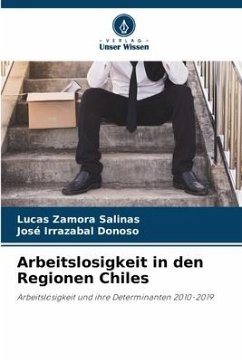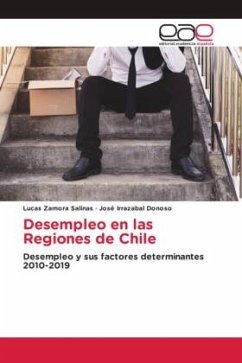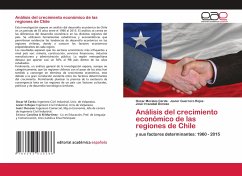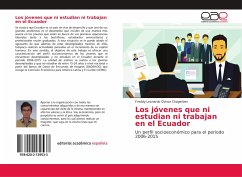
Unemployment in Chile's Regions
Unemployment and its determinants 2010-2019
Versandkostenfrei!
Versandfertig in 6-10 Tagen
45,99 €
inkl. MwSt.

PAYBACK Punkte
23 °P sammeln!
This research focuses on the analysis of unemployment in the regions of Chile and its determinants, from 2010 to 2019, by means of a linear regression model, together with statistical and econometric tools; based on the data from the New National Employment Survey. In order to analyze the marginal effect of the factors for each region and investigate how they affect over time.The relevant conclusions of this study were obtained on the average monthly unemployment time in the regions of the country, which yielded results in which unemployed people throughout the country spend between 3 and a ha...
This research focuses on the analysis of unemployment in the regions of Chile and its determinants, from 2010 to 2019, by means of a linear regression model, together with statistical and econometric tools; based on the data from the New National Employment Survey. In order to analyze the marginal effect of the factors for each region and investigate how they affect over time.The relevant conclusions of this study were obtained on the average monthly unemployment time in the regions of the country, which yielded results in which unemployed people throughout the country spend between 3 and a half and 6 months without work, where the average values for the longest time are found in the central-southern and southern areas of the country, clearly decreasing in the northern and extreme southern areas of the country. In the case of incidence over the years, it showed a greater impact on the gender factor, with the nationality factor standing out in the last years of the decade, as wellas a high unemployment time among young people.












